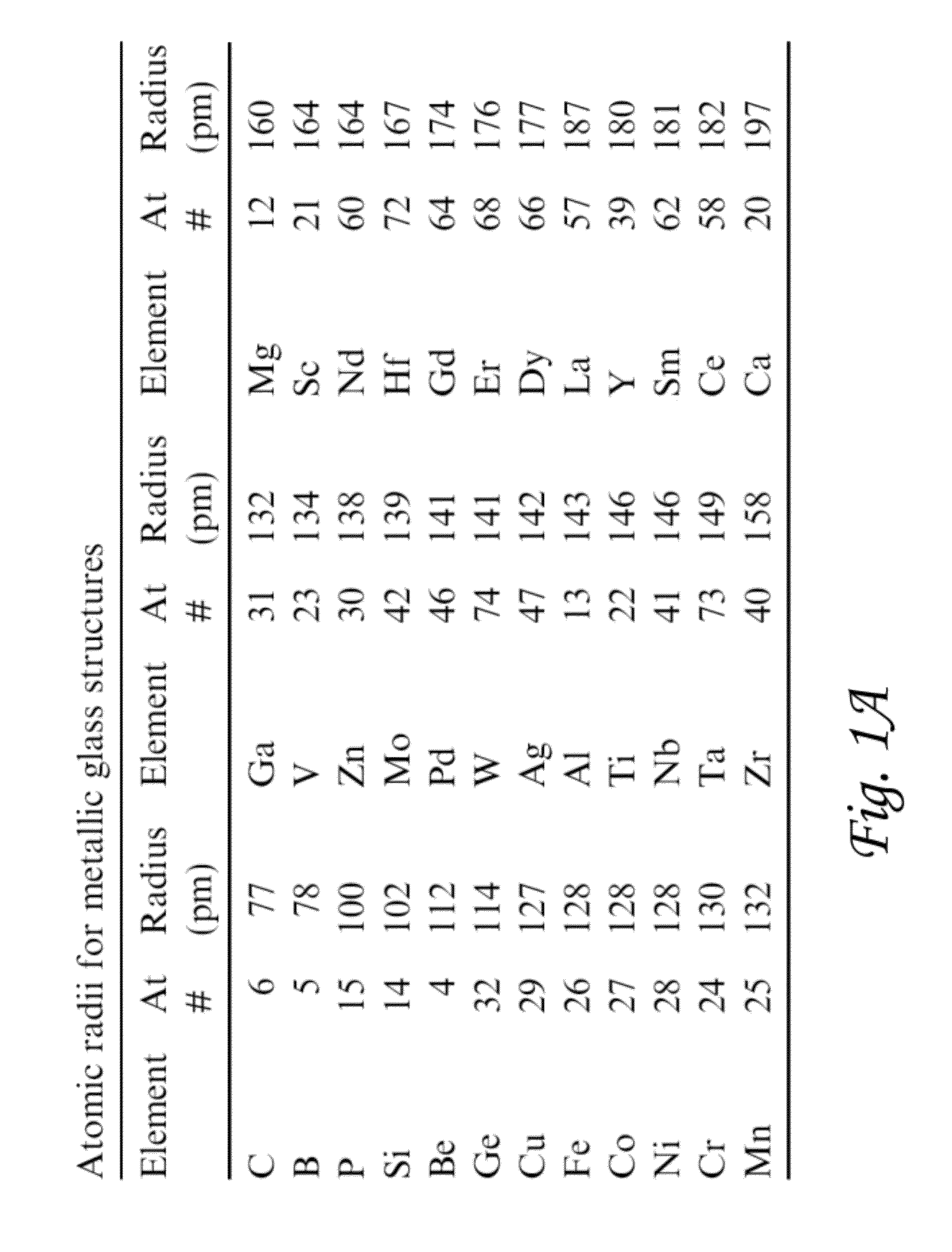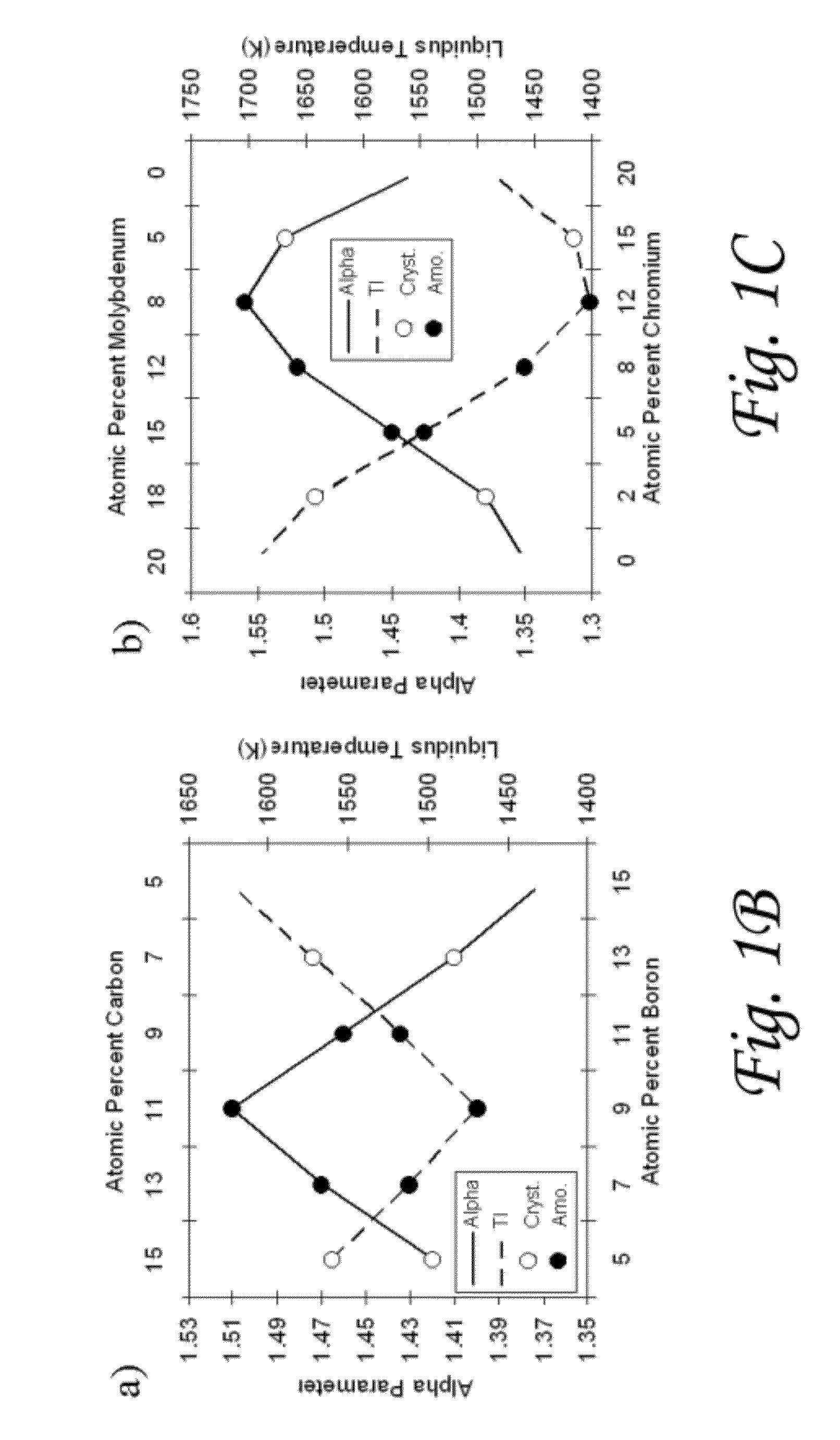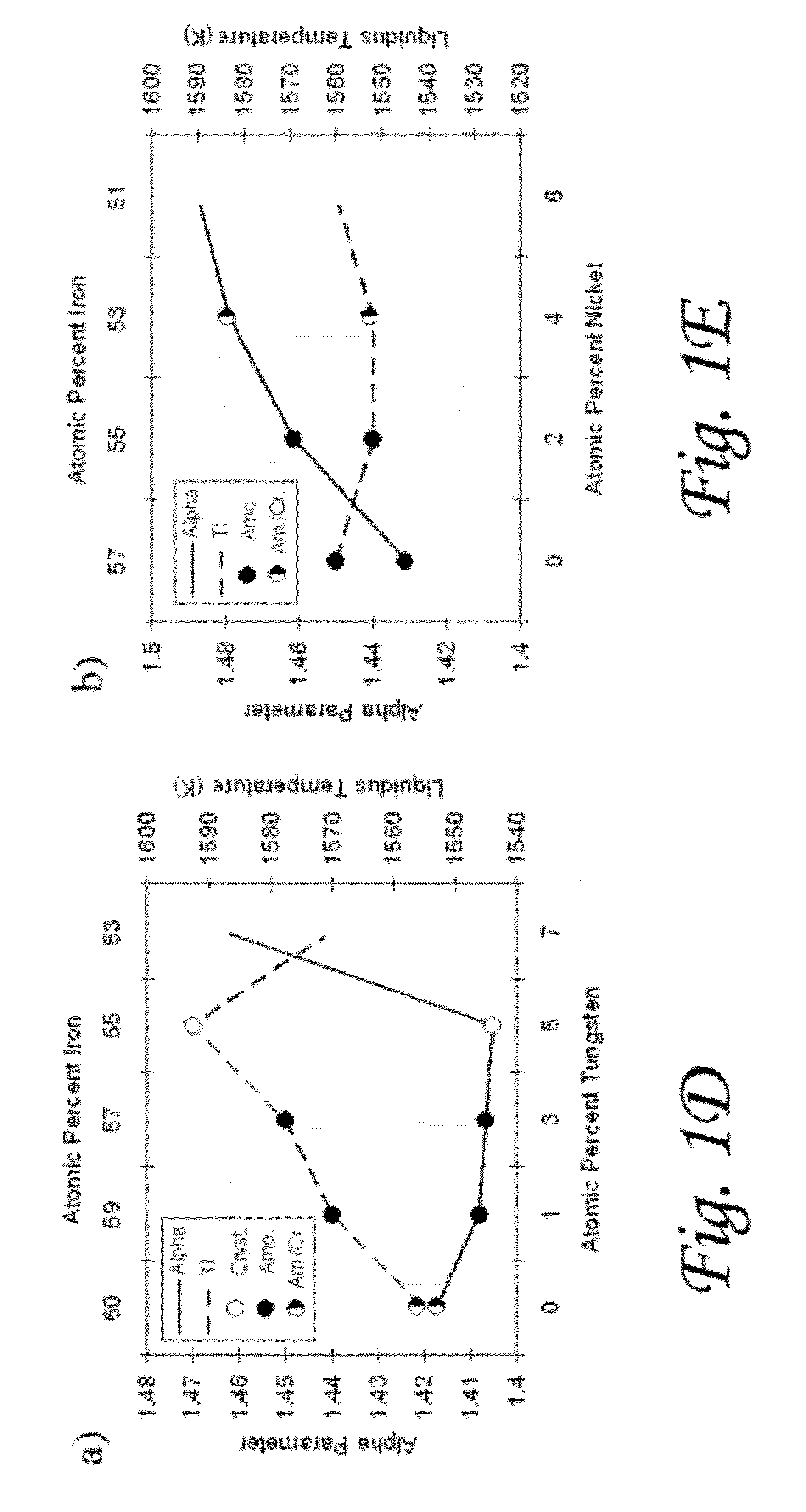Alloys for hardbanding weld overlays
a technology of overlays and alloys, applied in the field of metalurgy, can solve the problems of insufficient quantifiable components, inability to include specific quantifiable components, and inability to accurately predict the production of metallic glasses
- Summary
- Abstract
- Description
- Claims
- Application Information
AI Technical Summary
Benefits of technology
Problems solved by technology
Method used
Image
Examples
Embodiment Construction
[0010]According to certain aspects of the present disclosure, weld overlay materials are disclosed. In some embodiments, one or more materials of the present disclosure can be used as a superior weld overlay material for the protection of tool joints in oil and gas drilling operations. In some embodiments, one or more materials of the present disclosure can be used for other overlay hardfacing applications.
[0011]According to certain aspects of the present disclosure, an iron-based alloy is provided. The alloy can have a microstructure comprising a fine-grained ferritic matrix. The alloy can have a 60+ Rockwell C surface. The ferritic matrix can comprise <10 μm Nb and W carbide precipitates.
[0012]According to certain aspects of the present disclosure, a method of welding is provided. The method can comprise forming a crack free hardbanding weld overlay coating with an iron-based alloy. The alloy can have a microstructure comprising a fine-grained ferritic matrix. The alloy can have a...
PUM
| Property | Measurement | Unit |
|---|---|---|
| sizes | aaaaa | aaaaa |
| grain size | aaaaa | aaaaa |
| grain sizes | aaaaa | aaaaa |
Abstract
Description
Claims
Application Information
 Login to View More
Login to View More - R&D
- Intellectual Property
- Life Sciences
- Materials
- Tech Scout
- Unparalleled Data Quality
- Higher Quality Content
- 60% Fewer Hallucinations
Browse by: Latest US Patents, China's latest patents, Technical Efficacy Thesaurus, Application Domain, Technology Topic, Popular Technical Reports.
© 2025 PatSnap. All rights reserved.Legal|Privacy policy|Modern Slavery Act Transparency Statement|Sitemap|About US| Contact US: help@patsnap.com



